
RECENT REVIEWS
- *Review of: Extraordinary Canadians TV Series – Montreal Gazette
- *Review of: Extraordinary Canadians TV Series – Toronto Star
- *Review of: Extraordinary Canadians TV Series – TV Guide
- *Review of: Extraordinary Canadians TV Series – Winnipeg Free Press
- Review of: Extraordinary Canadians TV Series – Metro
- Review of: Wiflrid Laurier – The Chronicle Herald
- *Review of: Tommy Douglas – London Free Press
- Review of: Tommy Douglas – The Globe and Mail
- *Review of: Maurice Richard – The Globe and Mail
- *Review of: Wilfrid Laurier – The Globe and Mail
- *Review of: Maurice Richard – Telegraph-Journal
- Review of: Louis-Hippolyte LaFontaine and Robert Baldwin / Louis Riel and Gabriel Dumont – The StarPhoenix
- Review of: Marshall McLuhan – The New York Times
- Review of: Louis Riel and Gabriel Dumont – The Globe and Mail
- Review of: Louis-Hippolyte LaFontaine and Robert Baldwin – Winnipeg Free Press
- Review of: Louis-Hippolyte LaFontaine and Robert Baldwin – Toronto Star
- Review of: Louis-Hippolyte LaFontaine and Robert Baldwin – The Gazette
- Review of: Louis-Hippolyte LaFontaine and Robert Baldwin
Maclean’s- Review of: Marshall McLuhan – The Globe and Mail
- Review of: Marshall McLuhan – Winnipeg Free Press
- *Review of: René Levesque – Literary Review of Canada
- *Review of: Marshall McLuhan – Telegraph Journal
- Review of: Marshall McLuhan – Toronto Star
- *Review of: Marshall McLuhan – National Post
- *Review of: Marshall McLuhan – The Gazette
- *Review of: Glenn Gould – The Varsity
- *Review of: René Lévesque – The Ottawa Citizen
- Review of: René Lévesque – The Globe and Mail
- Review of: Glenn Gould – Toronto Star
- *Review of: Review Of Extraordinary Canadians Series – The Mcgill News
- Review of: Pierre Elliot Trudeau –Guelph Mercury
- Review of: Pierre Elliot Trudeau – The Globe and Mail
- Review of: Norman Bethune – The Globe and Mail
- *Review of: Mordecai Richler – The Globe And Mail
- *Review of: Stephen Leacock – The Globe and Mail
- Review of: Lester B. Pearson – National Post
- Review of: Review Of Big Bear – The Edmonton Journal
- Review of: Where the ‘greatest ideas’ live –Article From The Ottawa Citizen
- Review of: Review Of First Three Biographies – The Ottawa Citizen
- Review of: Biographies’ strength is in the pairing: Article About The Series –
The Vancouver Sun - *Review of: Songs of Ourselves: An Article About The Series – Maclean’s
- Review of: Can big names bring dead icons to life? – The Toronto Star
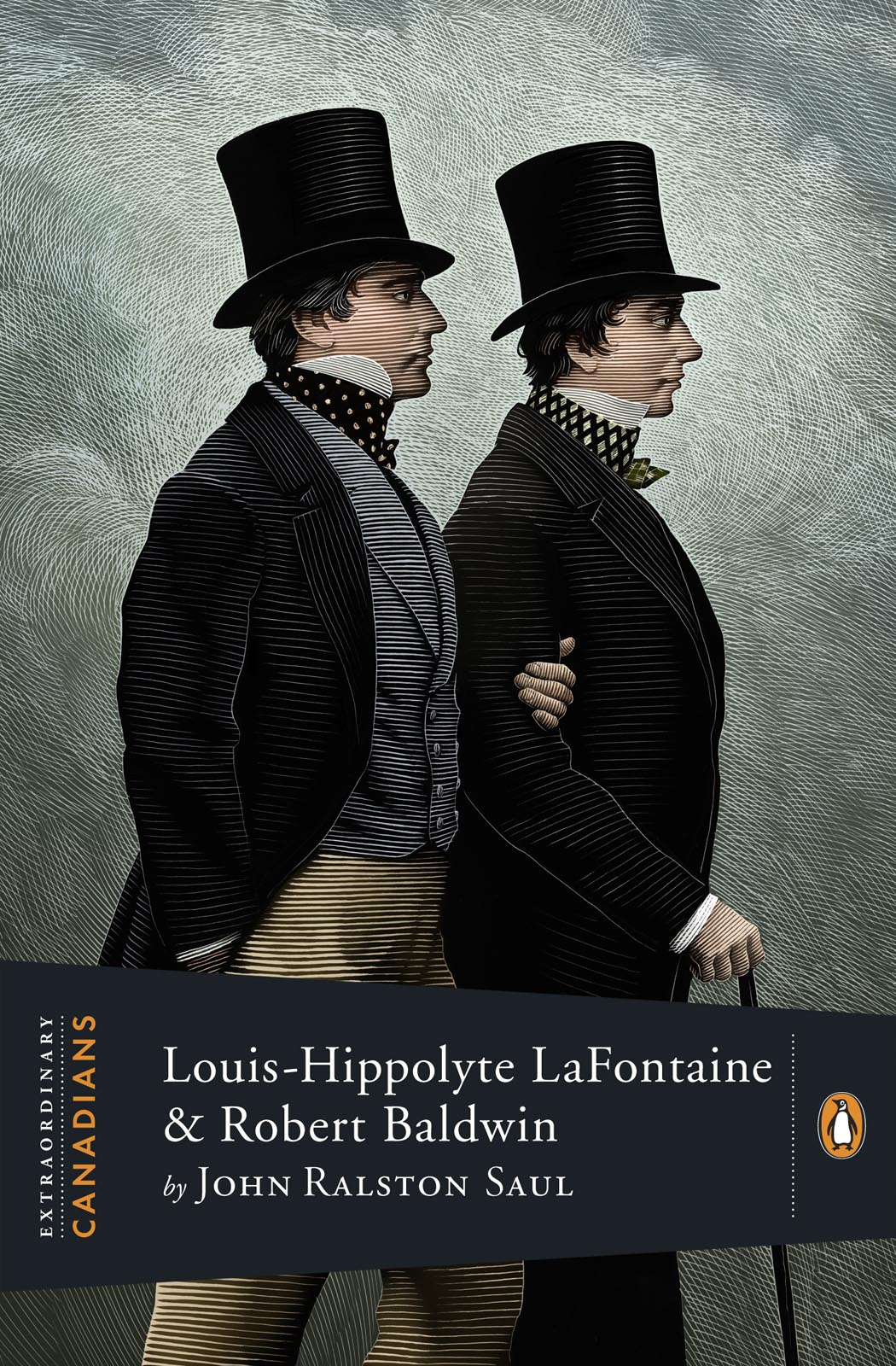
LOUIS-HIPPOLYTE LAFONTAINE AND ROBERT BALDWIN
BY JOHN RALSTON SAUL Canada has no better interpreter than prolific writer and thinker John Ralston Saul. Here he argues that Canada did not begin in 1867; indeed, its foundation was laid by two visionary men, Louis-Hippolyte LaFontaine and Robert Baldwin. The two leaders of Lower and Upper Canada, respectively, worked together after the 1841 Union to lead a reformist movement for responsible government run by elected citizens instead of a colonial governor.But it was during the “Great Ministry” of 1848—51 that the two politicians implemented laws that created a more equitable country. They revamped judicial institutions, created a public education system, made bilingualism official, designed a network of public roads, began a public postal system, and reformed municipal governance. Faced with opposition, and even violence, the two men— polar opposites in temperament—united behind a set of principles and programs that formed modern Canada. Writing with verve and deep conviction, Saul restores these two extraordinary Canadians to rightful prominence.
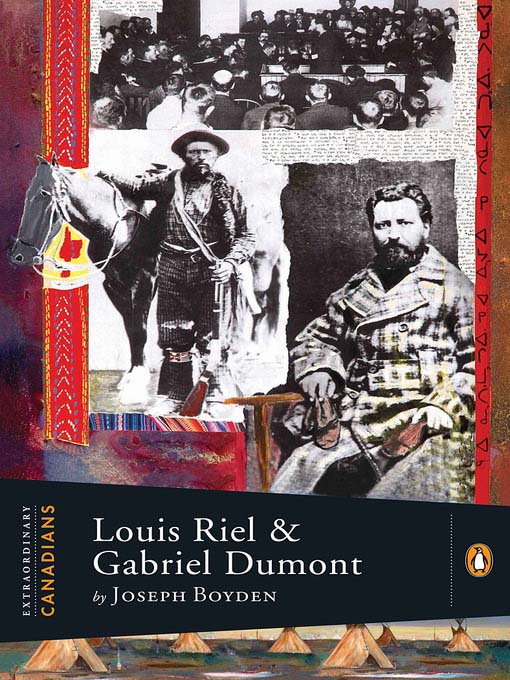
LOUIS RIEL AND GABRIEL DUMONT
BY JOSEPH BOYDEN Louis Riel is regarded by some as a hero and visionary, by others as a madman and misguided religious zealot. The Métis leader who fought for the rights of his people against an encroaching tide of white settlers helped establish the province of Manitoba before escaping to the United States. Gabriel Dumont was a successful hunter and Métis chief, a man tested by warfare, a pragmatist who differed from the devout Riel. Giller Prize—winning novelist Joseph Boyden argues that Dumont, part of a delegation that had sought out Riel in exile, may not have foreseen the impact on the Métis cause of bringing Riel home. While making rational demands of Sir John A. Macdonald’s government, Riel seemed increasingly overtaken by a messianic mission. His execution in 1885 by the Canadian government still reverberates today. Boyden provides fresh, controversial insight into these two seminal Canadian figures and how they shaped the country.
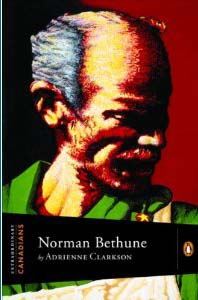
NORMAN BETHUNE
BY ADRIENNE CLARKSON John Ralston Saul’s central thought on Norman Bethune : Norman Bethune is perhaps the most extreme and uncompromising example we have of an ethical leader. His drive led him from working for Canada’s poor to the Spanish Civil War to the cause of Mao Zedong in China. There, with his death, he became the Chinese model for the ideal foreigner. And yet for Canadians today that model is not esoteric. Bethune carried an idea of the public good that cannot be limited to any particular political movement or country. His life represents an unrelenting personal commitment to individual people in a way that gives meaning to internationalism.
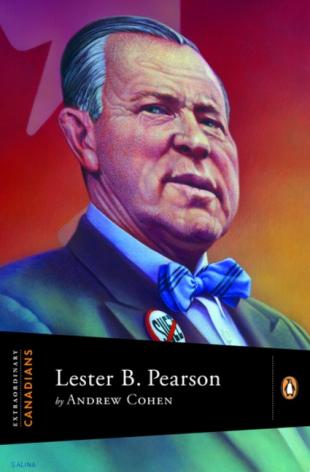
LESTER B. PEARSON
BY ANDREW COHEN John Ralston Saul’s central thought on Pearson : What always strikes me about Lester Pearson is his remarkable self-confidence – his and that of his band of friends who believed that Canada had to change. He instinctively understood that the real country was not being served or expressed by the system of leftover colonial habits which was still in place. What had to change was how we organized our society, how we projected justice among ourselves, how we explained and presented ourselves to ourselves, how we dealt with the rest of the world. In many ways, his five tempestuous, revolutionary years as prime minister remind me of the LaFontaine and Baldwin government in the middle of the nineteenth century. The country was somehow liberated by the mix of social improvements and political modernization.
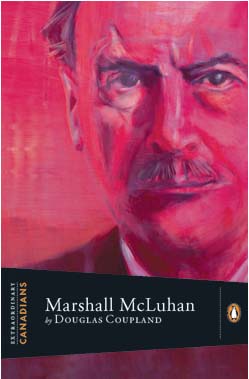
MARSHALL MCLUHAN
BY DOUGLAS COUPLAND John Ralston Saul’s central thought on Marshall McLuhan : At the heart of the Canadian experiment lies a continuous revolutionary approach toward communication. It is somehow spatial, not linear; it has been postmodern from the beginning. It was, and still is, there in First Nations philosophy. It took on a more or less Westernized form with Harold Innis, and from Innis sprouted Marshall McLuhan, who would find the words and language and gestures for people around the world to imagine themselves communicating in a different way. And remarkably, all of this was done long before most of the technology to make it possible existed. Out of what I would call the Toronto School – including, beyond Innis and McLuhan, people such as Glenn Gould and Northrop Frye – came a universal revolution in how we could think together.
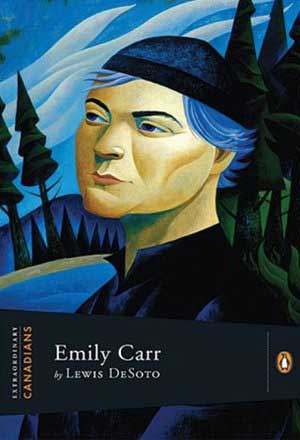
EMILY CARR
BY LEWIS DESOTO John Ralston Saul’s central thought on Emily Carr : I had always felt there was something deeply rigorous and original in Emily Carr’s paintings. Here Lewis DeSoto has found a way to the heart of her toughness. Art historians like to talk about how painters were influenced by others. Many Canadian art historians prefer to see our painters as not just influenced by, but derivative of, European schools. Certainly Carr picked up things here and there. Every painter everywhere does that. But what is remarkable is just how original Carr is. Along with Paul-Émile Borduas, she is our greatest painter. She somehow summoned up the deep heart not just of the British Columbian forest, but of Canada as forest and Canada as Aboriginal. That’s why people all over the country so instinctively identify with her images. This mysterious place is us. Emily Carr, with her toughness and humour and writing skills, is a sharp reminder of how edgy Canadians need to be to occupy this enormous, difficult space.
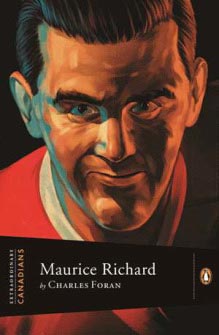
MAURICE RICHARD
BY CHARLES FORAN John Ralston Saul’s central thought on Maurice Richard : Somehow hockey does lie at the core of this Canadian story, not so much as a sport, but as the physical activity by which we measure ourselves. Maurice Richard evokes more than anyone else the game and the way that measurement is conceived. The great player becomes the great symbol – one which he can neither control nor shape to his satisfaction. This story, which the essayist, novelist and biographer, Charles Foran, brings us, is that of a human with whom we can all identify, not because we are great hockey players, but because the game comes alive and with it the social drama of Montreal and Quebec and eventually that of Canada as a whole. Richard’s story lies at the heart of the great stage play in which Canadians conceive of themselves.
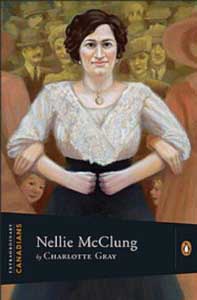
NELLIE MCCLUNG
BY CHARLOTTE GRAY John Ralston Saul’s central thought on Nellie McClung : Take Nellie McClung, for example. We think of her as one of five – the one with a stage presence and a sense of humour. But Charlotte Gray reveals someone quite different. She can now be seen as the greatest strategist of the first wave of the women’s movement and one of the most successful early feminists in the world. Why? Because she kept the movement mainstream and involved with broader issues, like the exploitation of immigrant women. When I read her story I discover a woman who today is still ahead of her time. I can imagine her speaking out right now on Iraq, on unsecured cheap labour, on the same old fat men controlling politics. I know she would make me laugh and make me want to help her change things for the better.
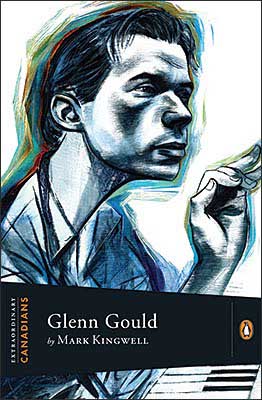
GLENN GOULD
BY MARK KINGWELL John Ralston Saul’s central thought on Glenn Gould : People around the world sensed from the first moment they heard him that Glenn Gould was about much more than playing the piano better or differently. In what can be called chance or destiny, he emerged as part of a creative explosion of ideas and sounds in Toronto. Marshall McLuhan, Harold Innis, Northrop Frye, Glenn Gould. All of them were reflecting and experimenting on what communications would and could become in a very different era, and they were all doing this in the same place at the same time. What the twentieth and now the twenty-first century thought and thinks about how we communicate with each other began in that place with those people.
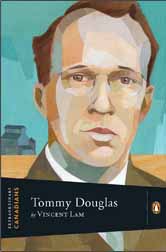
TOMMY DOUGLAS
BY VINCENT LAM John Ralston Saul’s central thought on Tommy Douglas : Tommy Douglas cuts across that experiment: a young man who witnessed the most violent events of the Winnipeg Strike from a rooftop; a socially engaged religious figure; the social democrat who broke through to government; the father of single-tier health care; the only national leader to stand up against the imposition of the War Measures Act in 1970. In a sense he was the inheritor of Laurier’s “Sunny Ways”. Vincent Lam, a powerful new force in our writing world, understands Medicare, understands the strength of a committed believer, understands the nature of social justice. And he brings all of this to the biography of a man who balanced the power of the word with the realities of action. Douglas stands as a reminder that any of us can try to do the right thing.
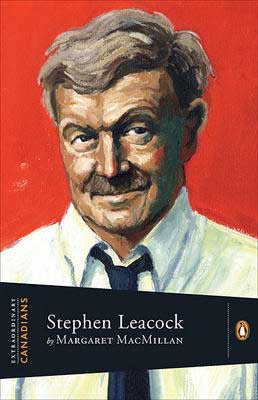
STEPHEN LEACOCK
BY MARGARET MACMILLAN John Ralston Saul’s central thought on Stephen Leacock : Stephen Leacock seems at first a deeply contradictory figure – the funniest of men, who through ironic laugher brings each of us back to the deep truths in our character, yet also the deadly serious conservative economist who fights for a disappearing idea of empire. Perhaps that contradiction remains as true about Canada today as it once was about Leacock. We see through him how Canada remains as it has always been, a deeply ironic country.
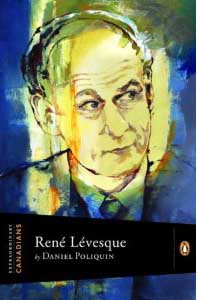
RENÉ LÉVESQUE
BY DANIEL POLIQUIN John Ralston Saul’s central thought on René Lévesque : Some of those who supported René Lévesque or opposed him in his mission to change Québec, and therefore Canada, will ask what he is doing in a series devoted to Extraordinary Canadians. But that is precisely what he was – an egalitarian, deeply ethical man, a man who pointed his finger at whatever wasn’t fair or inclusive in our society, a man who questioned Canadians in their assumptions about themselves. He made Canada a more interesting place, arguably a better place. Across the country people identified with him and, quite simply, liked him, even when they completely disagreed with him.
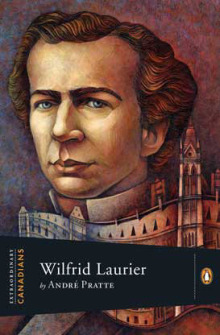
WILFRID LAURIER
BY ANDRÉ PRATTE John Ralston Saul’s central thought on Wilfrid Laurier : So much of this experiment has depended on the word and the creation of new political ideas. Wilfrid Laurier was a man of the word. His speeches, his way of talking to people, all built upon the non-violent philosophy of LaFontaine and Baldwin, were central to his political success. He created a new chapter of compromise, which would stumble several times, particularly during the First World War, but recover to shape the Canada of the 20th century. André Pratte understands the battles Laurier fought, using the weapons of intelligence, oratory and his “Sunny Ways”. Pratte, himself an important voice for social compromise, brings a sharp and modern clarity to a leader who set the stage for modern Canada.
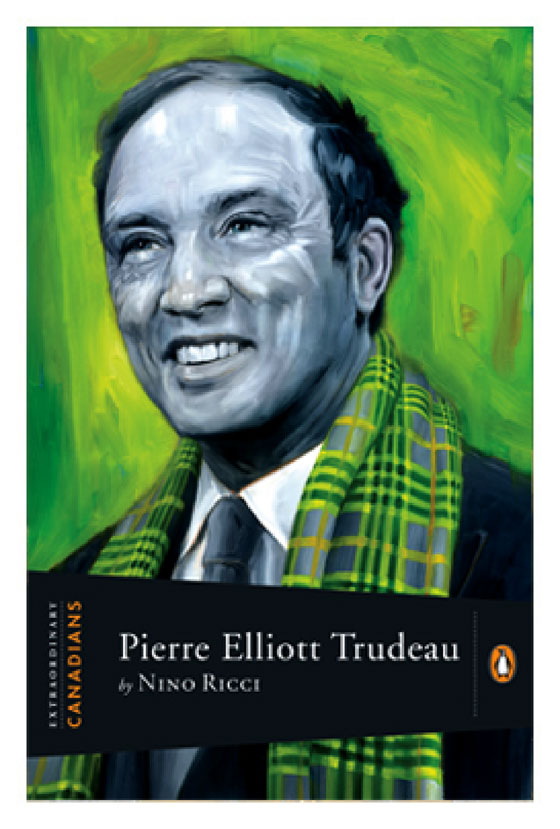
PIERRE ELLIOT TRUDEAU
BY NINO RICCI John Ralston Saul’s central thought on Pierre Elliott Trudeau : Pierre Elliott Trudeau is one of the most difficult modern figures to write about. All of us think we know him. And much of that myth of knowing has to do with how we see ourselves through the mirror of his long years of power. But knowing isn’t understanding. Nino Ricci’s novels have shown his great talent for revealing the complexities of the human heart. Here he has created a portrait, both psychological and intellectual, which puts together what we know with what we try to understand about Trudeau and ourselves. The strengths and weaknesses of the leader, his victories and failures, become one with the ambitions of the citizenry in an era when to be ambitious for your country – or against it – was considered the norm.
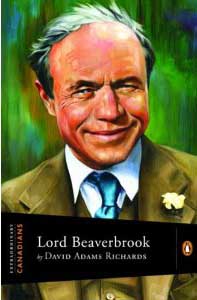
LORD BEAVERBROOK
BY DAVID ADAMS RICHARDS John Ralston Saul’s central thought on Lord Beaverbrook : David Adams Richards is absolutely right. No Canadian has ever been as powerful on the world scene as Max Aitken, Lord Beaverbrook. If there was any possibility that a colonial could push an empire around and change its intent, this was it. And God knows Beaverbrook tried. If he saw himself as a failure in the end it can only be because empires can’t be shaped by colonials or outsiders of any sort. To believe they can is part of the delusion of the special relationship. Empires have neither friends nor allies. And they don’t have special relationships. They have power and self-interest. The trick is to exploit them without getting in their way. Beaverbrook is the example for all time of just how far a colonial can go. But as he would tell you, it just isn’t far enough.
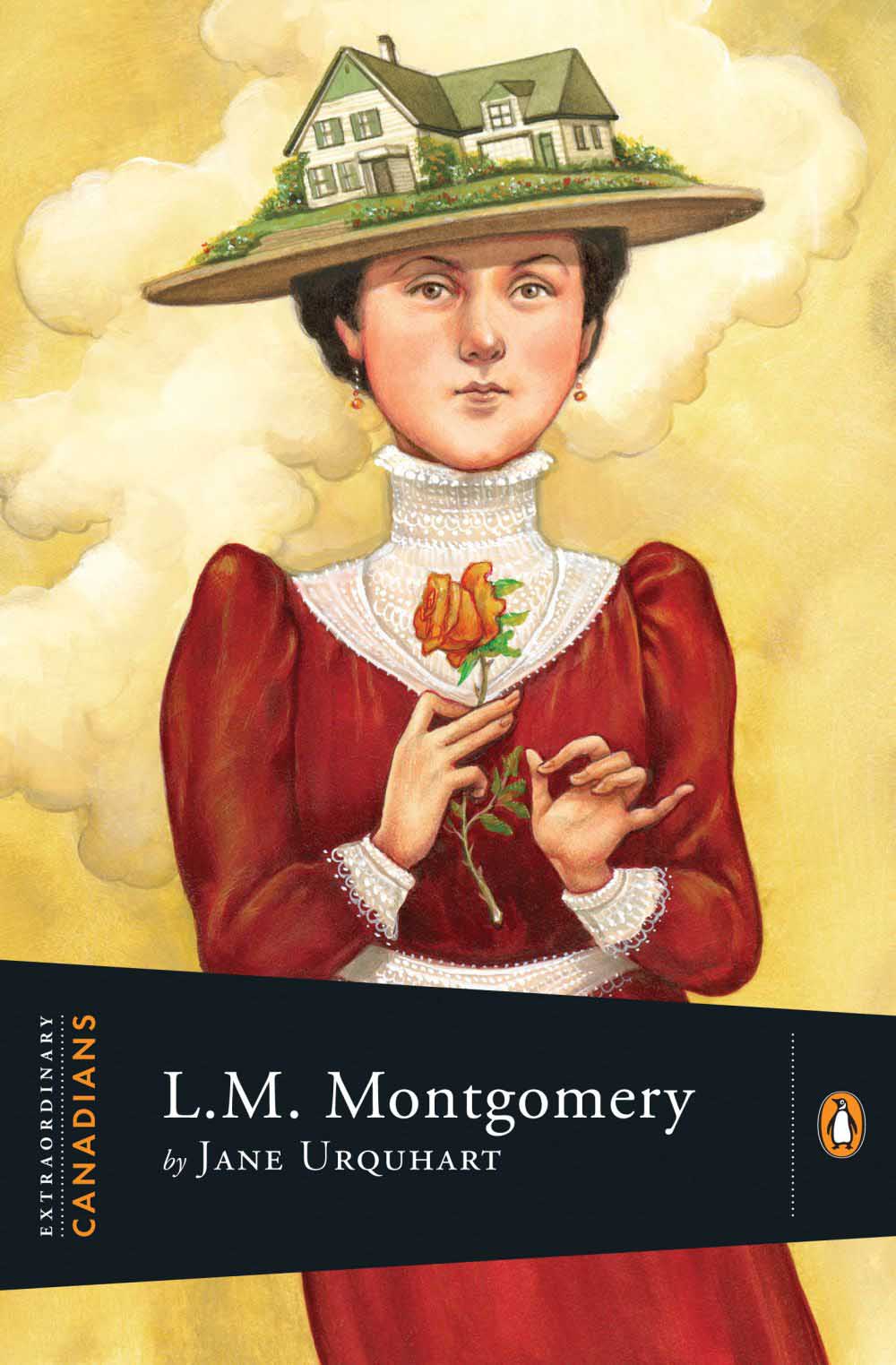
LUCY MAUD MONTGOMERY
BY JANE URQHART John Ralston Saul’s central thought on Lucy Maud Montgomery : Lucy Maud Montgomery was the most complex of the famous women of her era. In her novels she puts forward the world almost as it should be, and this world somehow speaks to people across borders and across time. In her public, middle-class life, she hid behind the rigid disguise of an Edwardian matron of the most formidable sort. And then, in her diaries – clearly written to become her public testament – she reveals her full suffering and the strength that a brilliant and driven woman needed to make her way.
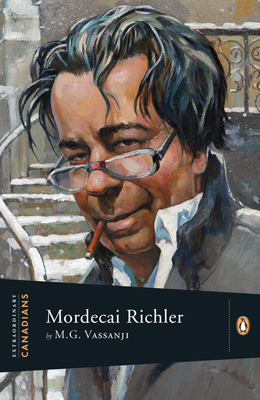
MORDECAI RICHLER
BY M.G. VASSANJI John Ralston Saul’s central thought on Mordecai Richler : Mordecai Richler cuts across a half-century of Canadian writing and mythmaking in a way that is continually surprising. His ability to find creative truth in the Jewish community of Montreal has become central to the image Canadians as a whole have of themselves at home and abroad. The southern, urban novelist was the one to make the Arctic a reality for everyone, as only a great fiction writer can. By driving his literary knife into every aspect of Canadian self-congratulation, he created our modern standards of creative edge.
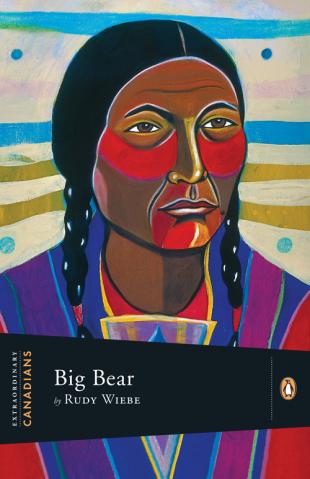
BIG BEAR
BY RUDY WIEBE John Ralston Saul’s central thought on Big Bear : I cannot think of another powerful leader in the history of Canada who so consciously and publicly lived by ethical decisions; the kind of ethical standards we would like to attach to our society today. Through all his dramas he never ceased trying to explain the difference between what today we would call the public good versus self-interest. You can look upon his life as a long and tragic defeat. Or you can look upon Big Bear as an illustration of what is best in our civilization. An ethical leader who suffers tragedy and defeat will often be a model for those who follow.
Read John Ralston Saul’s full Introduction to the Series.
How do civilizations imagine themselves? One way is for each of us to look at ourselves through our society’s most remarkable figures. I’m not talking about hero worship or political iconography. That is a danger to be avoided at all costs. And yet people in every country do keep on going back to the most important people in their past. This series of Extraordinary Canadians brings together rebels, reformers, martyrs, writers, painters, thinkers, political leaders. Why? What is it that makes them relevant to us so long after their deaths? For one thing, their contributions are there before us, like the building blocks of our society. More important than that are their convictions and drive, their sense of what is right and wrong, their willingness to risk all, whether it be their lives, their reputations, or simply being wrong in public. Their ideas, their triumphs and failures, all of these somehow constitute a mirror of our society. We look at these people, all dead, and discover what we have been, but also what we can be. A mirror is an instrument for measuring ourselves. What we see can be both a warning and an encouragement. These biographies of key Canadians are centred on the meaning of each of their lives. Each of them is very different, but these are not randomly chosen great figures. Together they produce a grand sweep of the creation of modern Canada, from our first steps as a democracy in 1848 to our questioning of modernity late in the 20th Century. See Also Penguin Canada. DOCUMENTARY SERIES Launching in Fall 2011 is the Extraordinary Canadians biographical television series. Based upon Penguin Canada’s Extraordinary Canadians collection of books edited by John Ralston Saul, the series provides deeply personal takes on the lives of eminent Canadians from the perspective of celebrated contemporary writers. Unique among television biography series, Extraordinary Canadians captures the relationship between writer and subject that lies at the heart of the biography process, and probes the distinctive link between the two. As each writer chronicles the life of a Canadian from whom they have drawn inspiration, we will be treated to insights into the lives of both biographer and subject. Extraordinary Canadians will air Sundays at 8:30pm ET/PT on Citytv, premiering Sunday, October 23, and later on The Biography Channel, airing Saturdays at 7:30pm ET/PT, premiering Saturday, October 29. The series will also air in Mandarin, Hindi and Italian language on OMNI Television in spring 2012.






